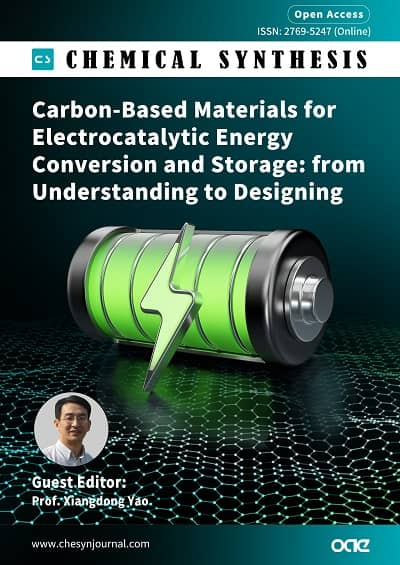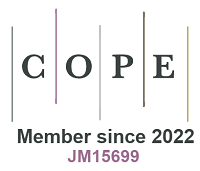
Topic: Carbon-Based Materials for Electrocatalytic Energy Conversion and Storage: from Understanding to Designing
Guest Editor(s)
Special Issue Introduction
It is vital to discover renewable energy technologies to replace conventional fossil fuels to resolve the energy crisis and pollution issues. Consequently, electrocatalytic reactions, represented by hydrogen evolution reaction (HER), oxygen evolution reaction (OER), oxygen reduction reaction (ORR), and carbon dioxide reduction reaction (CO2RR), are regarded as promising energy conversion and storage pathways. However, the strategies of exploiting catalysts for different reactions are diversified, and the performances involved in catalytic activity and acuteness can be highly dependent on the properties and reaction mechanisms of the material itself. Currently, electrocatalysts based on noble metal and non-noble metal for various electrochemical reactions are gradually carried out, whereas accompanying issues such as low cost-effectiveness, catalyst toxicity-induced performance degradation, as well as reaction system contamination will limit the further industrialization of metal-based catalysts. Hence, it is imperative to develop a new generation of electrochemical catalysts with environmental friendliness, high efficiency and low cost.
Carbon-based materials, including amorphous carbons and carbons with nanostructures, have received enormous attention in electrocatalyst development due to their environmental friendliness, cost-effectiveness, and good stability in acid and alkali media. Particularly, low-/multi-dimensional carbon nanostructures (such as carbon nanotubes, nanowires, graphene, etc.) have emerged as promising candidates with regular and periodic graphite structure, large surface area, good conductivity and potential in structural tunability at the atomic level. In the early stages, heteroatom dopants in the carbon skeleton, such as N, P, S and B, etc., are regarded as active sites of carbon-based electrocatalysts. Then, with the in-depth study, people found that structural defects in carbon rings can break the electronic conjugation structure to influence the charge distribution, thus enhancing catalytic activity. Recently, a new mechanism of defective carbon-based materials (DCMs) was put forward by our group and other fellows that the introduction of different kinds of topological defects can facilitate electrocatalytic activity. Extensive studies were demonstrated and direct evidence is found to prove the effects on active sites created by different kinds of defects. Although this theory is widely accepted and many related works are published, there is still a long way to go, from predicting the defect structures base on different electrochemical reactions to material design and preparation.
In this Special Issue, we will mainly discuss the development of carbon-based electrocatalysts and an in-depth understanding of different theories in catalyzing mechanisms. Then, the details of the strategies and methodologies of controllable synthesizing dopant carbons and carbons with defective structures will be concluded. Finally, we will summarize the key challenges in designing complex carbon active sites (especially for defect structures), provide a guide in characterization methods to investigate mechanisms, and importantly, expect development and opportunities in the future.
Carbon-based materials, including amorphous carbons and carbons with nanostructures, have received enormous attention in electrocatalyst development due to their environmental friendliness, cost-effectiveness, and good stability in acid and alkali media. Particularly, low-/multi-dimensional carbon nanostructures (such as carbon nanotubes, nanowires, graphene, etc.) have emerged as promising candidates with regular and periodic graphite structure, large surface area, good conductivity and potential in structural tunability at the atomic level. In the early stages, heteroatom dopants in the carbon skeleton, such as N, P, S and B, etc., are regarded as active sites of carbon-based electrocatalysts. Then, with the in-depth study, people found that structural defects in carbon rings can break the electronic conjugation structure to influence the charge distribution, thus enhancing catalytic activity. Recently, a new mechanism of defective carbon-based materials (DCMs) was put forward by our group and other fellows that the introduction of different kinds of topological defects can facilitate electrocatalytic activity. Extensive studies were demonstrated and direct evidence is found to prove the effects on active sites created by different kinds of defects. Although this theory is widely accepted and many related works are published, there is still a long way to go, from predicting the defect structures base on different electrochemical reactions to material design and preparation.
In this Special Issue, we will mainly discuss the development of carbon-based electrocatalysts and an in-depth understanding of different theories in catalyzing mechanisms. Then, the details of the strategies and methodologies of controllable synthesizing dopant carbons and carbons with defective structures will be concluded. Finally, we will summarize the key challenges in designing complex carbon active sites (especially for defect structures), provide a guide in characterization methods to investigate mechanisms, and importantly, expect development and opportunities in the future.
Keywords
Electrocatalysis, electrocatalytic reactions, carbon-based materials, defects, low-/multi-dimensional carbon
Submission Deadline
28 May 2024
Submission Information
For Author Instructions, please refer to https://www.oaepublish.com/cs/author_instructions
For Online Submission, please login at https://oaemesas.com/login?JournalId=cs&IssueId=cs220905
Submission Deadline: 28 May 2024
Contacts: Zoe Lee, Assistant Editor, assistant_editor@chesynjournal.com






